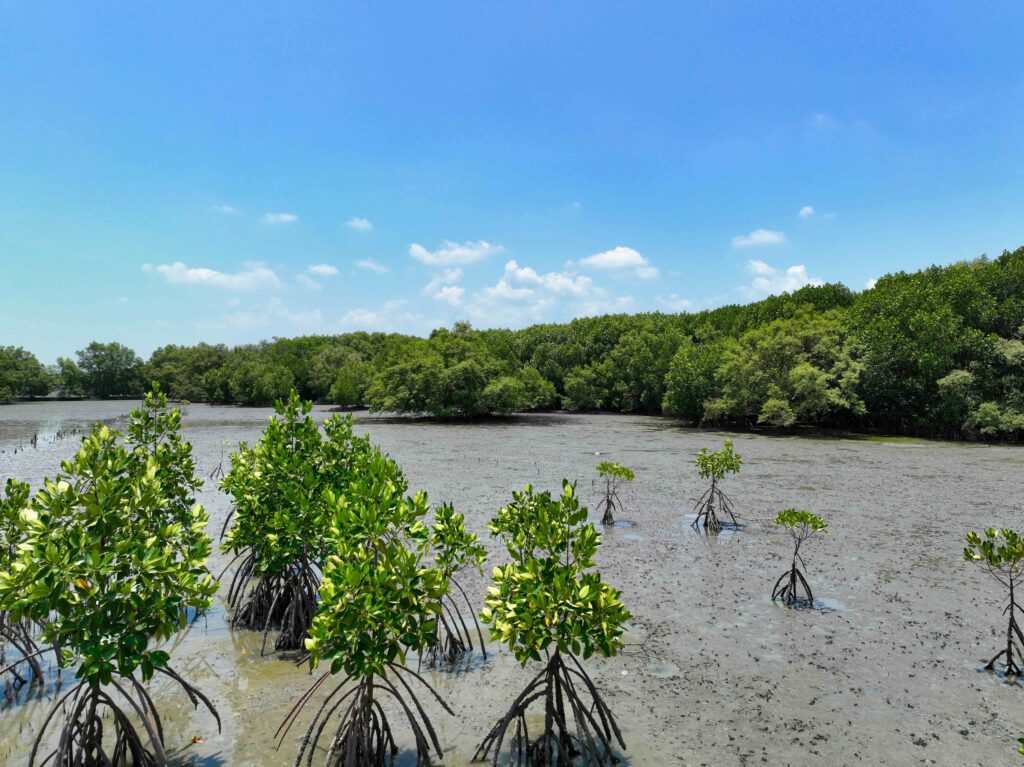1. Horn of Africa drought persists
Three years of drought conditions in the Horn of Africa show no signs of letting up, according to a Kenya-based climate monitoring group. The IGAD Climate Prediction and Applications Center (ICPAC) says that below average rainfall is expected over the next three months, which is normally the region’s rainy season.
“In parts of Ethiopia, Kenya, Somalia, and Uganda that have been most affected by the recent drought, this could be the 6th failed consecutive rainfall season,” ICPAC predicts.
In contrast “wetter than normal conditions are expected over the cross-border areas of Ethiopia and South Sudan, north-western Kenya, and parts of central and southern Tanzania”, says the climate centre. Temperatures are also likely to be higher across the region, it adds.

The IGAD Climate Prediction and Applications Center (ICPAC) says that below average rainfall is expected over the next three months, which is normally the region’s rainy season. Image: ICPAC
In the most severely affected areas, drought conditions are worse than in 2010-2011 when hundreds of thousands of people died, according to ICPAC. An estimated 23 million people are currently “highly food insecure” in Ethiopia, Kenya and Somalia, and 11 million livestock in the region have died, it says.
IGAD has also announced plans to partner with the International Federation of Red Cross and Red Crescent Societies (IFRC) to help address the crisis. “These prolonged and recurrent climate change induced droughts will further worsen other existing, mutually exacerbating humanitarian challenges in the region, including the ongoing hunger crisis, the impacts of COVID-19 and internal displacement,” said IFRC director Mohammed Mukhier. “We need an all-hands-on-deck approach to strengthen food systems, livelihoods, and climate resilience.”
2. Plastic use in G20 could nearly double by 2050
Plastic use in G20 countries is on course to nearly double by the middle of the century unless a comprehensive and legally binding global treaty to curb consumption is drawn up, according to research.
Existing programmes to boost recycling or cut single-use plastic consumption only “scratched the surface” and a more comprehensive global plan is required, according to Back to Blue, a research group run by the Economist Impact think-tank and the Nippon Foundation, a private philanthropic organisation.
The United Nations began talks in November on an agreement to tackle plastic pollution. Around 175 countries have signed up to the talks which aim to draw up a legally binding treaty by the end of 2024.
However, if negotiations fail, annual plastic production in G20 countries could rise to 451 million tonnes by 2050 according to current rates of growth, Back to Blue says – up nearly three-quarters from 2019.
“There should be no illusions that the treaty negotiations will be anything but difficult and treacherous,” the research group said. “The chances of failure – not just that no treaty emerges but one that is too weak to reverse the plastic tide – are considerable.”
It’s calling for a more aggressive ban on single-use plastic, together with higher production taxes and mandatory schemes to make firms responsible for the entire lifespan of their products, including recycling and disposal.
3. News in brief: Top climate crisis stories this week
The fossil fuel industry is failing to tackle methane emissions despite its pledges to uncover and fix leaking infrastructure, according to a report by the International Energy Agency (IEA). The global energy industry released some 135 million tonnes of the potent greenhouse gas into the atmosphere in 2022 – only slightly below the record amount released in 2019.

Developed nations’ failure to deliver on a decade-old commitment to pay billions in annual climate financing to developing nations is a “travesty”. Image: IEA
Developed nations’ failure to deliver on a decade-old commitment to pay billions in annual climate financing to developing nations is a “travesty”, according to Achim Steiner, administrator of the UN Development Programme. Wealthy nations are yet to deliver on the 2009 pledge to provide $100 billion per year to help developing nations mitigate rising global temperatures.
Total ecosystem collapse is “inevitable” unless unprecedented current wildlife losses are reversed, The Guardian reports. Scientists studying the Permian-Triassic extinction event of 250 million years ago, known as the “Great Dying”, found that ecosystems can reach a tipping point from which they are unlikely to recover.
The carbon price in the EU’s emissions trading system has gone over 100 euros ($105) per tonne for the first time, reports the Financial Times. It’s seen as a landmark moment as it may encourage companies to invest in technologies to fight the climate crisis, like carbon capture, utilization and storage.
A team of influential economists has published a report urging China to adopt a new development model based on “wellbeing” rather than GDP growth in order to fulfil its 2060 net-zero emissions goals. China aims to bring emissions to a peak by 2030, though at what level they will peak is currently unclear.
France is preparing to introduce restrictions on water use in parts of the country from March, in an unprecedented move for the time of year. It follows the driest winter in 64 years.
New data shows that only 0.4% of companies have a credible climate transition plan, reports Energy Monitor. An assessment of 18,600 companies by non-profit the Carbon Disclosure Project found that only 81 of the 4,000 claiming to have a climate transition project in place had a plan that met all of its key indicators for transition.
4. More on the climate crisis on Agenda
Resource recovery and waste management are essential parts of a circular economy. However, two experts from Saahas Zero Waste argue that there is large-scale global resistance to taking accountability for the materials we use and consume.
A Berlin neighbourhood will embark on a novel experiment this coming summer: eliminating parking spaces. The idea behind the project is to devote the space usually reserved for cars to other uses like growing plants or providing recreation.
Australia and New Zealand have both faced a series of devastating floods triggered by the climate crisis and the return of the La Niña weather pattern. In the aftermath of Cyclone Gabrielle, a climate expert explains how Australia’s experiences might offer New Zealand a guide for recovering.
Read original article



